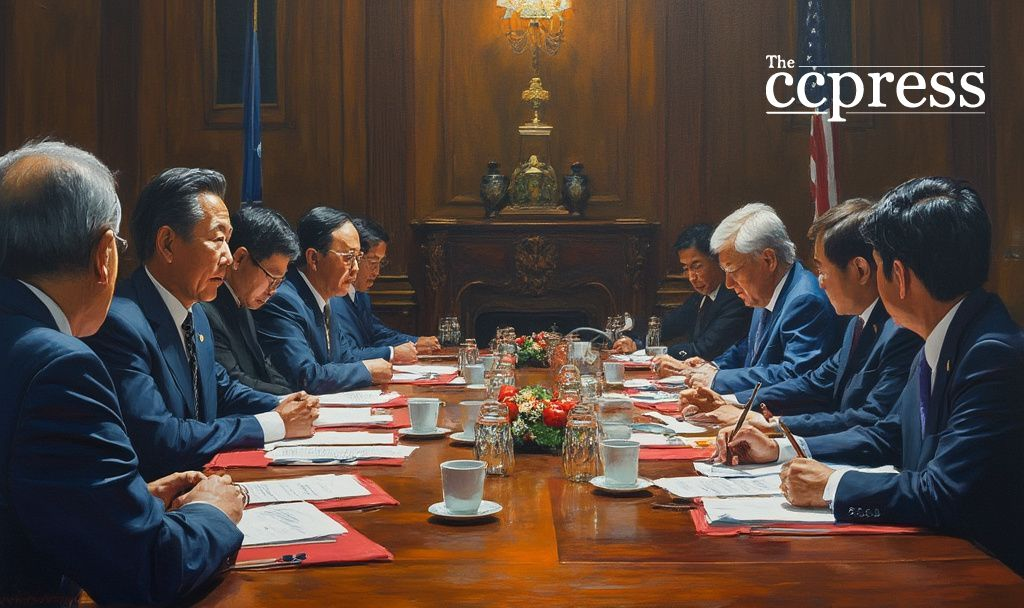- Leadership shift with Han Duck-soo influencing trade negotiations.
- Focus on diplomatic solutions without immediate retaliation.
- Potential volatility in crypto markets remains unobserved.
Lede: South Korea, led by Acting President Han Duck-soo, announced plans to remove trade barriers with the United States, aiming for a win-win economic solution amid new U.S. tariffs.
Nut Graph: This event highlights ongoing U.S.-South Korea trade tensions, potentially impacting economic relations without immediate effects on cryptocurrency markets.
South Korea, under Acting President Han Duck-soo, seeks to eliminate trade barriers with the United States. This initiative arises amid new reciprocal tariffs announced by President Donald J. Trump, targeting perceived imbalances. The focus remains on non-confrontational solutions.
Acting President Han emphasized non-retaliation, aiming for diplomatic remedies to remove trade impediments. “We will not fight back… I’m looking for solutions which are more win-win for both, rather than taking their actions as the objective against which we should fight back.” – Han Duck-soo, Acting President of South Korea. Ahn Duk-geun, the Industry Minister, and Cheong In-kyo, the Trade Minister, support these efforts through negotiations in Washington.
The immediate effect on cryptocurrency markets appears minimal, with no direct price movements observed in major digital assets like BTC or ETH. Historical trade tensions, however, have prompted volatility in speculative markets.
The broader geopolitical landscape may see shifts in policy, impacting automotive, pharmaceutical, and digital trade sectors. Financial markets await any secondary upheavals that might influence investment patterns or market confidence.
While discussions focus on traditional trade barriers, the absence of direct crypto regulations keeps immediate market reactions muted. Stakeholders in both nations remain attentive to ongoing negotiations.
Historically, trade conflicts under prior U.S. administrations triggered market speculation involving risk assets. Current diplomatic dialogues aim to avoid drastic economic repercussions, emphasizing collaborative resolutions over unilateral actions.
